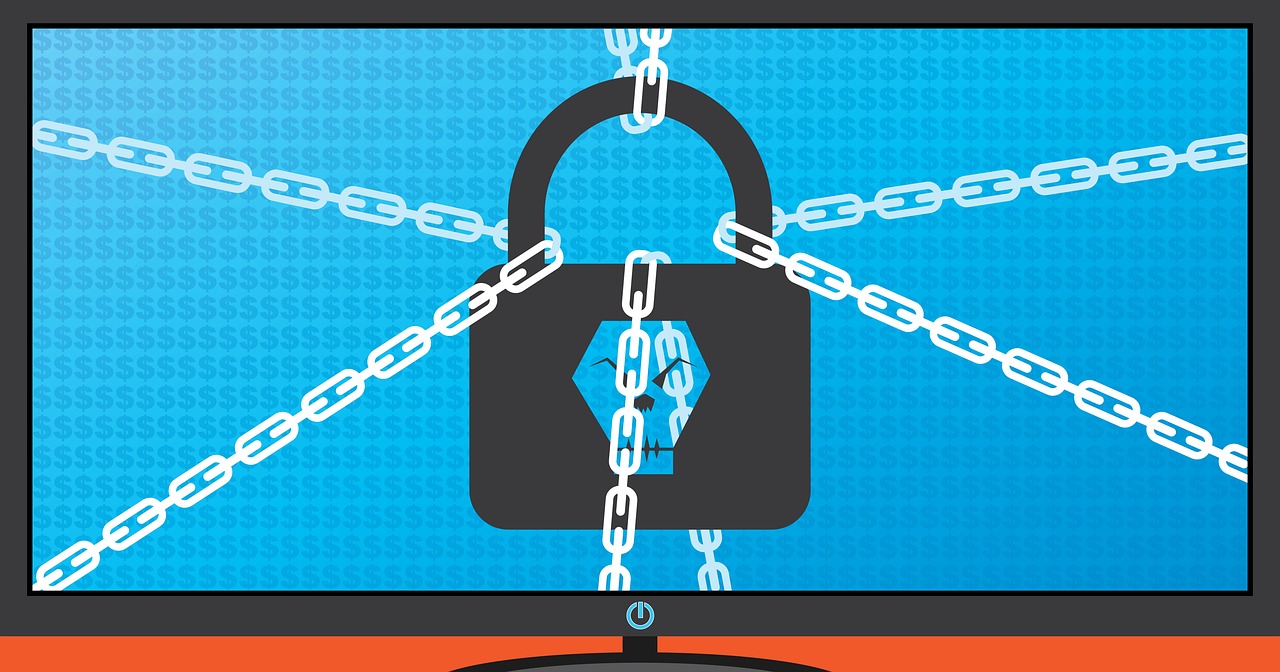Beware: The Risks of Online Quizzes and Games
In today's digital age, online quizzes and games have become a staple of our entertainment. They pop up on social media feeds, enticing us with promises of fun, knowledge, and a chance to discover more about ourselves. But before you dive headfirst into that quiz titled "Which Disney Princess Are You?" or that game claiming to test your IQ, it's crucial to pause and consider the potential risks that come along with them. Understanding these dangers can help you navigate the online landscape more safely and wisely.
One of the most pressing issues surrounding online quizzes and games is the data privacy concern. Many of these platforms collect personal information, often without users fully realizing it. Think about it: when you answer questions about your favorite hobbies, your age, or even where you live, you're sharing sensitive information. This data can be harvested by malicious entities for various purposes, including identity theft and targeted advertising. It's like opening the door to your home and inviting in strangers without knowing their intentions. To safeguard your privacy, always read the terms and conditions before participating and be cautious about the information you provide.
Engaging in online quizzes and games isn't just about having fun; it can also have significant psychological effects. Many users find themselves drawn into a cycle of addiction, where the thrill of completing a quiz or leveling up in a game becomes more important than real-life responsibilities. This can lead to feelings of anxiety and diminished attention spans. Have you ever sat down to take a quick quiz only to realize hours have passed? This is a common experience, and it's essential to recognize when gaming shifts from a fun pastime to a detrimental habit.
Frequent participation in fast-paced quizzes can shorten attention spans, making it increasingly challenging for individuals to focus on tasks that require sustained concentration. Imagine trying to read a book or complete a work project when your mind is racing with thoughts of the latest quiz results. Over time, this shift can affect academic and professional performance, leading to frustration and decreased productivity.
While the immediate gratification from quizzes can be enjoyable, the long-term consequences on cognitive abilities may hinder personal growth and development. It's like indulging in a sugary treat; it feels great in the moment, but too much can lead to health problems down the line. Balancing online engagement with other activities, such as reading or exercising, is crucial for maintaining mental well-being.
Recognizing the signs of addiction is vital. If you find yourself neglecting responsibilities, feeling restless without gaming, or prioritizing online play over real-life interactions, it may be time to reassess your habits. Awareness can help individuals take proactive steps to manage their online behaviors effectively and ensure that they don't spiral into unhealthy patterns.
Online quizzes and games can also alter social dynamics. While they may provide a platform for connection, they can sometimes lead to isolation or negative peer pressure. Have you ever felt left out when friends are discussing their quiz results? Understanding these risks is vital for maintaining healthy relationships in both online and offline environments. It's essential to strike a balance between virtual interactions and real-life connections to foster genuine relationships.
Another significant concern is the spread of misinformation and scams through online quizzes and games. Many seemingly innocent quizzes are designed to mislead users or gather personal information. Users must be cautious about the accuracy of the information presented and the intentions behind these games. It's a bit like receiving a beautifully wrapped gift that turns out to be empty inside—what seemed enticing at first can lead to disappointment and potential harm.
Learning to recognize misleading content is essential for navigating online quizzes. Users should develop critical thinking skills to assess the validity of information before sharing or acting upon it. Ask yourself questions like: Is this source reliable? or What is the purpose of this quiz? Taking a moment to analyze can save you from falling into the trap of misinformation.
Scams often disguise themselves as fun quizzes, luring users into providing personal information or financial details. For instance, a quiz might promise to reveal your compatibility with a celebrity but then ask for your email address or credit card information. Awareness of these tactics can help individuals protect themselves from online fraud. Always remember: if something seems too good to be true, it probably is!
To mitigate the risks associated with online quizzes and games, users should follow best practices:
- Verify sources: Always check the credibility of the quiz or game before participating.
- Limit personal information sharing: Be cautious about the details you provide.
- Set time limits: Allocate a specific amount of time for online engagement to promote healthier habits.
By being mindful of these recommendations, you can enjoy online quizzes and games while minimizing potential risks.
Q: Are online quizzes safe to take?
A: While many quizzes are harmless, it's essential to be cautious about the information you share and the source of the quiz.
Q: How can I identify a scam quiz?
A: Look for red flags such as requests for personal information, poor grammar, or overly sensationalized claims.
Q: What should I do if I think I’m addicted to online quizzes?
A: Consider setting limits on your participation, seeking support from friends or family, and engaging in alternative activities.

Data Privacy Concerns
In today's digital age, the allure of online quizzes and games is hard to resist. They promise fun, entertainment, and even a chance to learn something new about ourselves. However, lurking beneath the surface of these seemingly innocent activities is a significant issue: . Many users dive headfirst into these quizzes without a second thought, often unaware that they are sharing sensitive personal information.
When you participate in an online quiz, you might be asked to provide details such as your name, email address, or even more personal information like your location or date of birth. This data can be collected by the quiz creators or third-party advertisers, leading to potential misuse. Here are some of the ways your data can be exploited:
- Identity Theft: Cybercriminals can use your information to impersonate you, leading to financial loss and damage to your reputation.
- Targeted Advertising: Your data can be sold to marketers who will bombard you with personalized ads, which can feel invasive and overwhelming.
- Spam and Phishing: Providing your email can lead to a flood of unwanted emails, some of which may be phishing attempts designed to steal even more information.
Moreover, many people fail to read the terms and conditions before clicking "accept." This oversight can have serious consequences, as these agreements often outline how your data will be used. It's crucial to understand that once your data is out there, controlling its use can become nearly impossible. You might think, "What harm can a simple quiz do?" But the reality is that the implications can be far-reaching.
Another alarming trend is the rise of quizzes that disguise themselves as harmless fun but are actually designed to harvest your data. These quizzes often present enticing questions that seem harmless, but behind the scenes, they are collecting information that can be used for malicious purposes. It's a bit like inviting a stranger into your home—what seems harmless at first can quickly turn dangerous.
To protect yourself, consider the following precautions:
- Limit Personal Information: Only provide the bare minimum of information required to participate.
- Research the Source: Verify the credibility of the website or app before engaging with its content.
- Read Privacy Policies: Take the time to understand how your data will be used and stored.
In conclusion, while online quizzes and games can be a fun distraction, they come with inherent risks that shouldn't be ignored. By being aware of the data privacy concerns and taking proactive steps to safeguard your information, you can enjoy these activities without compromising your personal security. Remember, in the digital world, knowledge is power, and staying informed is your best defense against potential threats.
Q: Are all online quizzes dangerous?
A: Not all quizzes are harmful, but many collect personal data. It's essential to verify the source and read privacy policies before participating.
Q: How can I tell if a quiz is safe?
A: Look for quizzes from reputable websites, check for reviews, and always read the privacy policy.
Q: What should I do if I've shared my information?
A: If you suspect your information has been compromised, consider changing your passwords and monitoring your accounts for any suspicious activity.

Psychological Impacts
Engaging with online quizzes and games can be a double-edged sword. On one hand, they offer a fun escape from reality, but on the other hand, they can lead to various psychological effects that many users might not even realize they're experiencing. It’s like walking a tightrope; one misstep can lead to a fall into the abyss of addiction, anxiety, or reduced attention spans. Have you ever found yourself scrolling through quiz results instead of finishing that important report? If so, you’re not alone.
One of the most significant issues is addiction. The instant gratification that comes from completing a quiz or leveling up in a game can be incredibly enticing. This can create a cycle where individuals feel compelled to return repeatedly, often at the expense of their responsibilities and relationships. Think of it as a sugar rush; it feels great in the moment, but the crash that follows can be harsh. Users may start to neglect their daily responsibilities, leading to feelings of guilt and anxiety.
Moreover, the fast-paced nature of many online games and quizzes can significantly impact our attention spans. Frequent participation in these activities can condition our brains to expect constant stimulation. As a result, tasks requiring sustained focus, such as studying or working on long-term projects, may feel tedious and overwhelming. It’s as if our brains have been rewired to crave the quick hits of dopamine that come from instant rewards, making it increasingly challenging to engage in more demanding cognitive tasks.
Research suggests that the shift in attention spans can have long-lasting effects. For instance, students who frequently engage in quick quizzes may find it difficult to concentrate during lectures or while reading lengthy texts. Over time, this can lead to a decline in academic performance. Picture it like a garden; if you only water the fast-growing weeds, the beautiful flowers might wither away. It’s essential to cultivate a balance between quick entertainment and more enriching activities.
While the immediate satisfaction from quizzes can be enjoyable, the long-term consequences on cognitive abilities may hinder personal growth and development. It’s crucial to recognize that what seems harmless in the moment can have profound implications down the line. Balancing online engagement with offline activities—like reading, exercising, or spending time with loved ones—can help mitigate these negative effects. Just like a well-balanced diet is essential for physical health, a mix of online and offline activities is vital for mental well-being.
So how do you know if you’ve crossed the line into addiction? Some telltale signs include:
- Neglecting responsibilities in favor of gaming or quizzes
- Feeling restless or irritable when not engaged in these activities
- Constantly thinking about the next quiz or game
Being aware of these signs can empower individuals to take proactive steps to manage their online habits effectively. Just like a lighthouse guiding ships away from rocky shores, awareness can help steer you back to safer waters.
Finally, let’s not forget about the social implications of online quizzes and games. While they can be a great way to connect with friends, they can also alter social dynamics in unexpected ways. Sometimes, these platforms can foster feelings of isolation or negative peer pressure. Understanding these risks is vital for maintaining healthy relationships both online and offline. It’s essential to remember that while virtual connections are valuable, they should never replace real-life interactions.

Impact on Attention Span
The rapid-fire nature of online quizzes and games can significantly impact our attention span. Think about it: when you engage with a quiz that throws questions at you every few seconds, your brain gets accustomed to that quick pace. It's like training a puppy to fetch; if you keep throwing the ball faster and faster, the puppy learns to sprint rather than take its time to enjoy the game. This constant stimulation can make it increasingly challenging to focus on tasks that require deeper concentration, such as reading a book or completing a work assignment.
Research has shown that individuals who frequently participate in these fast-paced activities may find themselves struggling to engage in more cognitive-demanding tasks. The shift in focus can lead to a decline in productivity and creativity, which are essential for both personal and professional growth. In a world where distractions are just a click away, it’s crucial to recognize how these online engagements can reshape our cognitive abilities over time.
Moreover, the tendency to multitask while playing these games can further exacerbate the issue. For instance, many people find themselves scrolling through social media or chatting with friends while attempting to complete a quiz. This divided attention can lead to a fragmented thought process, making it even harder to concentrate on one thing at a time. It’s like trying to listen to a podcast while having a conversation; you end up missing key points from both.
To illustrate the impact of online quizzes on attention span, consider the following table:
| Activity | Typical Duration | Impact on Attention Span |
|---|---|---|
| Online Quiz | 1-5 minutes | Shortened attention span; quick shifts in focus |
| Reading a Book | 30 minutes - 2 hours | Improves focus and cognitive engagement |
| Watching a Movie | 90 minutes - 3 hours | Encourages sustained attention but can lead to passive consumption |
As we can see, while online quizzes provide immediate gratification and entertainment, they can also lead to a shorter attention span over time. So, how do we strike a balance? It's essential to incorporate activities that require sustained focus into our daily routines. This could mean setting aside time for reading, engaging in deep conversations, or even practicing mindfulness exercises. These activities not only help counteract the effects of quick-paced games but also contribute to overall mental well-being.
In conclusion, while online quizzes and games can be a fun way to pass the time, it's vital to be aware of their potential impact on our attention spans. By understanding these effects, we can make more informed choices about how we engage with digital content and ensure that our cognitive abilities remain sharp and focused.
- How can I improve my attention span? Consider engaging in activities that require prolonged focus, such as reading or puzzles, and limit time spent on fast-paced online games.
- Are all online quizzes harmful? Not necessarily, but it's crucial to be mindful of how they affect your concentration and to balance them with other activities.
- What are some signs that my attention span is decreasing? Difficulty focusing on tasks, frequent distractions, and feeling restless when not engaging in fast-paced activities can be indicators.

Short-Term vs. Long-Term Effects
When we dive into the world of online quizzes and games, it's easy to get swept away by the thrill and excitement they offer. In the short term, these activities can provide a delightful escape from reality, a quick dose of entertainment that can brighten even the dullest of days. Think of it as a sugary treat—satisfying in the moment, but what happens when the sugar rush fades? That's where the long-term effects come into play.
The immediate gratification we experience from these online interactions can lead to a cycle of dependency. Users often find themselves returning for more, lured by the promise of instant rewards and quick fun. However, as this behavior becomes habitual, it can lead to a decline in our cognitive abilities. Over time, the brain becomes accustomed to the rapid-fire pace of quizzes and games, which can significantly shorten our attention spans. Imagine trying to read a book after binge-watching a series of fast-paced action movies; the contrast can be jarring.
Moreover, while short-term engagement can feel harmless, the long-term consequences can be quite detrimental. For instance, studies suggest that individuals who frequently engage in these activities may experience:
- Diminished Focus: The ability to concentrate on tasks requiring sustained attention can wane, affecting both academic and professional performance.
- Reduced Critical Thinking Skills: Quick-fire quizzes often discourage deep thinking, leading to a reliance on surface-level understanding.
- Social Isolation: As users spend more time online, they may inadvertently neglect face-to-face interactions, leading to feelings of loneliness.
It's crucial to recognize this balance between short-term enjoyment and long-term consequences. Engaging in online quizzes and games should feel like a fun hobby, not a full-time job. Just as we need a balanced diet to maintain our physical health, we should also strive for a balanced online experience. Incorporating other activities—like reading, exercising, or engaging in real-world social interactions—can help mitigate the potential negative impacts of excessive online gaming and quizzing.
Ultimately, understanding the difference between short-term gratification and long-term effects empowers us to make better choices. So, the next time you find yourself scrolling through endless quizzes, take a moment to reflect: is this a fun escape or a slippery slope?
- Are online quizzes safe to take?
While many quizzes are harmless, it's essential to be cautious about sharing personal information. - Can online games lead to addiction?
Yes, excessive engagement can lead to addictive behaviors that impact daily life. - How can I protect my data while playing online?
Limit the personal information you share and ensure the website is reputable. - What are the signs of quiz addiction?
Neglecting responsibilities, feeling anxious without gaming, and prioritizing quizzes over other activities can be indicators.

Signs of Addiction
Recognizing the to online quizzes and games is crucial for maintaining a healthy relationship with technology. Just like any other form of addiction, the symptoms can be subtle at first but may escalate over time. One of the most telling signs is the neglect of responsibilities. If you find yourself skipping work, avoiding chores, or ignoring social commitments because you’re too engrossed in a game or quiz, it’s a red flag. It’s almost like being caught in a web; the more you engage, the harder it becomes to break free.
Another sign is the feeling of restlessness or irritability when you’re not gaming. Have you ever noticed how you feel anxious or out of sorts when you can’t log in to your favorite quiz? This emotional reaction can signal that your brain is becoming dependent on the dopamine rush that these activities provide. It’s akin to a rollercoaster ride—exhilarating while you’re on it, but when it stops, you’re left craving that thrill again.
Moreover, if you find yourself playing for hours on end, it’s essential to take a step back and evaluate your habits. A good way to gauge this is to keep a log of your gaming time. You can create a simple table to track your daily engagement:
| Date | Hours Played | Activities Neglected |
|---|---|---|
| 01/01/2023 | 4 | House chores |
| 01/02/2023 | 6 | Family dinner |
| 01/03/2023 | 5 | Work deadlines |
This table can help you visualize how your gaming habits might be affecting other areas of your life. If you notice a pattern of increasing hours and decreasing responsibilities, it’s time to reassess your priorities. Additionally, you might experience withdrawal symptoms when trying to cut back, such as headaches or mood swings. This is your brain signaling that it’s become accustomed to the constant stimulation.
Lastly, consider how your relationships are impacted. If friends or family express concern about your gaming habits, or if you find yourself choosing quizzes over social interactions, this can indicate a deeper issue. Remember, just like a plant needs sunlight and water to thrive, your relationships need attention and care. If you’re pouring all your energy into online activities, you might be neglecting the very connections that nourish your life.

Social Interaction Risks
When it comes to online quizzes and games, the allure of fun and engagement can sometimes mask the potential that come with them. While these activities can foster connections and provide a sense of community, they can also lead to negative outcomes that may affect both online and offline relationships. Have you ever noticed how a simple quiz can spark debates or create divisions among friends? This is a prime example of how online interactions can shift social dynamics.
One of the primary risks is the potential for isolation. As individuals become engrossed in online quizzes and games, they may inadvertently neglect real-life relationships. Picture this: someone is so invested in achieving a high score or completing a challenge that they forget to call a friend or attend a family gathering. Over time, this behavior can lead to feelings of loneliness and disconnection. The irony is that while these games are designed to connect us, they can sometimes drive a wedge between us and our loved ones.
Furthermore, online quizzes often come with an element of competition. This can foster negative peer pressure, where individuals feel compelled to participate or perform at a certain level to gain acceptance or approval from their peers. Have you ever felt the need to take a quiz just because everyone else was doing it? This pressure can create a toxic environment, where the fear of missing out (FOMO) outweighs the enjoyment of the activity itself. In extreme cases, it can lead to bullying or exclusion, particularly for those who may not perform as well.
Moreover, the anonymity of the internet can sometimes encourage toxic behavior. People may feel emboldened to say things they wouldn't dream of saying face-to-face, leading to misunderstandings and conflicts. This can be particularly damaging in group settings, where a single negative comment can spiral into a full-blown argument, leaving relationships strained. It’s essential to recognize that behind every quiz and game, there are real people with feelings and emotions, and it’s crucial to maintain a level of respect and empathy.
To navigate these social interaction risks, it’s important to strike a balance between online and offline engagement. Here are a few tips to consider:
- Set specific times for online activities to ensure you’re also dedicating time to real-life relationships.
- Engage with friends and family about the quizzes and games you enjoy, fostering discussions that can enhance your connections.
- Be mindful of the content you share and the interactions you have online, ensuring they align with your values and respect others.
In conclusion, while online quizzes and games can provide entertainment and a sense of community, they also pose significant social interaction risks that shouldn’t be overlooked. By being aware of these risks and taking proactive steps to mitigate them, you can enjoy your online experiences without compromising your relationships.
- What are the main social interaction risks associated with online quizzes?
Online quizzes can lead to isolation, negative peer pressure, and toxic behavior, affecting both online and offline relationships. - How can I balance online gaming with real-life interactions?
Setting specific times for online activities and engaging with friends about your experiences can help maintain this balance. - Are there signs that online quizzes are negatively impacting my relationships?
Signs include neglecting real-life interactions, feeling pressure to participate, or experiencing conflicts stemming from online comments.

Misinformation and Scams
In today's digital age, the allure of online quizzes and games is undeniable. They promise fun, engagement, and a chance to learn something new about ourselves. However, lurking beneath this shiny surface is a darker reality: the potential for misinformation and scams. Many quizzes and games are not just harmless entertainment; they can be cunningly designed to spread false information or extract personal data from unsuspecting users.
One of the most alarming aspects of online quizzes is their ability to masquerade as innocent fun while actually serving a more nefarious purpose. For instance, a quiz titled "What Type of Friend Are You?" might seem harmless, but it could be a front for gathering personal data. Users often share their names, email addresses, and even phone numbers without a second thought, thinking they are just participating in a light-hearted game. This information can then be sold to advertisers or worse, used for identity theft.
Moreover, the spread of misinformation through these platforms can have real-world consequences. Quizzes that claim to provide insights into health, politics, or social issues can often be based on dubious sources or outright lies. For example, a quiz might suggest that a certain health trend is beneficial without any scientific backing. Users, eager to share their results, may inadvertently spread these inaccuracies to their friends and family, creating a ripple effect of misinformation.
To illustrate the prevalence of scams disguised as quizzes, consider the following table that highlights common tactics used by scammers:
| Tactic | Description |
|---|---|
| Clickbait Titles | Quizzes with sensational titles that promise shocking results or revelations. |
| Data Harvesting | Quizzes that ask for personal information under the guise of providing personalized results. |
| Fake Prizes | Offers of prizes or giveaways that require users to share their information or complete additional tasks. |
| Malicious Links | Links embedded within quizzes that lead to phishing sites or malware downloads. |
As users, it's essential to develop a critical eye when engaging with online content. Here are some tips to help you navigate the murky waters of online quizzes:
- Check the Source: Always verify the credibility of the website offering the quiz. Is it a reputable source? Does it have a history of providing accurate information?
- Be Skeptical of Personal Questions: If a quiz asks for sensitive information, think twice before proceeding. Your privacy is more important than a fun result.
- Research Before Sharing: If you come across a quiz that claims to provide important information, do your homework. Look for reliable articles or studies that support its claims.
By being vigilant and informed, you can enjoy online quizzes and games without falling prey to misinformation and scams. Remember, the internet is a vast landscape filled with both treasures and traps. Equip yourself with the knowledge to discern between the two!
Q1: How can I tell if an online quiz is trustworthy?
A1: Look for quizzes hosted on reputable websites. Check for reviews or feedback from other users, and be cautious if the quiz asks for excessive personal information.
Q2: What should I do if I suspect a quiz is a scam?
A2: Report the quiz to the platform it’s hosted on, and avoid sharing any personal information. You can also warn friends and family to prevent them from falling victim.
Q3: Are all online quizzes harmful?
A3: Not all quizzes are harmful, but it’s important to approach them with caution. Always verify the information and be mindful of what you share.

Identifying Misinformation
In the vast ocean of the internet, misinformation often floats around like debris, and online quizzes can be particularly treacherous waters. It's essential to develop a keen eye for identifying misleading content that can lead to confusion or even harm. Have you ever taken a quiz that promised to reveal your personality type based on your favorite pizza topping? While it might seem harmless, such quizzes can sometimes be vehicles for spreading false information or even phishing for your data.
To navigate these murky waters, consider the following key indicators of misinformation:
- Source Credibility: Always check where the quiz or game originates. Is it from a reputable site, or does it seem sketchy? Legitimate quizzes often come from well-known platforms.
- Fact-Checking: If a quiz claims to provide factual information—like health advice or historical facts—cross-reference that information with reliable sources. A quick search can save you from falling for a trap.
- Vague Language: Be wary of quizzes that use ambiguous terms or sensationalized headlines. If it sounds too good to be true, it probably is!
Moreover, it's crucial to engage your critical thinking skills. Ask yourself questions like, "What’s the purpose of this quiz?" or "Who benefits from me sharing my results?" By maintaining a healthy skepticism, you can better protect yourself from being misled.
Lastly, remember that sharing is caring—but not when it comes to misinformation. Before you share quiz results or intriguing facts derived from these quizzes, take a moment to verify their accuracy. Sharing unverified content can perpetuate the cycle of misinformation, turning you into an unwitting accomplice. So, the next time you find yourself clicking on a quiz, keep these tips in mind, and you'll be well on your way to becoming a savvy internet user!
Q1: How can I tell if a quiz is trustworthy?
A1: Check the source of the quiz, look for credible references, and verify the information with reliable sources.
Q2: What should I do if I find misinformation in a quiz?
A2: Report it to the platform hosting the quiz and avoid sharing it further to prevent spreading false information.
Q3: Can online quizzes really affect my mental health?
A3: Yes, excessive engagement with online quizzes can lead to issues like addiction or anxiety, so it's important to be mindful of your usage.
Q4: Are there any safe quizzes I can take?
A4: Look for quizzes from reputable educational or entertainment websites that prioritize user privacy and data security.

Common Scams
In the vast expanse of the internet, where every click could lead to a new adventure, it's essential to remain vigilant, especially when it comes to online quizzes and games. While many of these activities seem harmless and entertaining, they can often be a facade for malicious scams designed to exploit unsuspecting users. The allure of fun quizzes can quickly turn into a nightmare if one isn't careful.
One of the most prevalent scams involves quizzes that promise to reveal something intriguing about the user, such as their personality type or future prospects. These quizzes often require participants to input personal information, such as their email address or even more sensitive data. Once this information is provided, it can be sold to third parties or used for phishing attempts. Imagine filling out a quiz that claims to predict your love life, only to find yourself inundated with spam emails or worse, identity theft.
Another common type of scam involves fake prize giveaways. Users may encounter quizzes that claim they have a chance to win exciting prizes, like gift cards or the latest gadgets. However, to enter these contests, participants are typically asked to share their personal details or complete additional surveys that lead to more scams. It's like being lured into a treasure hunt only to discover that the treasure is a trap!
Furthermore, some quizzes may lead to malicious sites that install malware on users' devices. This can happen when a quiz asks users to click on links that seem harmless but redirect them to sites designed to steal data or infect their systems. It's crucial to treat every link with caution, as one wrong click can compromise your digital security.
To help you identify these scams, here are some red flags to watch out for:
- Too Good to Be True Offers: If a quiz promises unbelievable results or prizes, it's likely a scam.
- Excessive Personal Information Requests: Be wary if a quiz asks for more than just your name and email.
- Unverified Sources: Always check if the quiz comes from a reputable website or organization.
By understanding these common scams and recognizing the warning signs, you can enjoy online quizzes and games without falling victim to their darker side. Remember, while the internet can be a playground of fun and knowledge, it can also harbor traps that can jeopardize your privacy and security. Stay informed, stay safe, and keep your wits about you!
Q: How can I tell if an online quiz is safe?
A: Look for quizzes hosted on reputable websites, check for reviews, and avoid those that ask for excessive personal information.
Q: What should I do if I think I've fallen for a scam?
A: Immediately change your passwords, monitor your accounts for unusual activity, and report the scam to the relevant authorities.
Q: Are there any specific types of quizzes I should avoid?
A: Be cautious of quizzes that promise unrealistic outcomes, require sensitive information, or direct you to unfamiliar websites.

Recommendations for Safe Engagement
In the vast and often unpredictable world of online quizzes and games, staying safe should be your top priority. Just like crossing a busy street, you need to look both ways before diving in. Here are some practical recommendations to ensure that your online engagement remains enjoyable and secure.
First and foremost, always verify the sources of the quizzes and games you participate in. Just because something pops up on your social media feed doesn’t mean it’s trustworthy. Check the website’s credibility and look for reviews or feedback from other users. Think of it as reading the label before consuming a product; you wouldn’t want to put something harmful in your body, right?
Another essential tip is to limit the personal information you share. Many quizzes ask for details like your email address, phone number, or even more sensitive information. It’s crucial to remember that not all quizzes need this data to function. Keep your information as private as possible, and consider using a secondary email account for any quizzes that require sign-up.
Setting time limits on your engagement with online quizzes and games is also vital. It’s easy to lose track of time when you’re engrossed in a fun quiz, but too much screen time can lead to negative impacts on your mental health and overall well-being. Try using a timer to remind yourself to take breaks and engage in other activities. Balance is key! You wouldn’t eat cake for every meal, would you?
Additionally, be skeptical of the content presented in these quizzes. If something seems too good to be true, it probably is. Misinformation can spread like wildfire, and quizzes that promise to reveal your personality or predict your future should be taken with a grain of salt. Always question the validity of the information before sharing it with others.
Lastly, consider discussing your online experiences with friends or family. This not only helps you gain perspective but also opens up a dialogue about the potential risks associated with online quizzes and games. Sharing your thoughts can lead to valuable insights and help you identify any unhealthy patterns in your online behavior.
In summary, staying safe while engaging with online quizzes and games requires a combination of skepticism, caution, and open communication. By following these recommendations, you can enjoy the fun of online engagement while minimizing the risks involved.
Q: Are all online quizzes and games dangerous?
A: Not all online quizzes and games are dangerous, but many can pose risks related to privacy, misinformation, and psychological effects. It's essential to approach them with caution.
Q: How can I tell if a quiz is trustworthy?
A: Look for reviews, check the website’s credibility, and verify the source. If it seems suspicious or asks for excessive personal information, it’s best to avoid it.
Q: What should I do if I think I’ve fallen for a scam?
A: If you suspect you've been scammed, immediately change your passwords, report the scam to the platform, and monitor your accounts for any unusual activity.
Q: How can I balance online engagement with other activities?
A: Set specific time limits for online quizzes and games, and schedule breaks to engage in offline activities like reading, exercising, or spending time with friends.
Q: Is it okay to share quiz results on social media?
A: While sharing quiz results can be fun, be cautious about the information you share and ensure that it doesn’t include personal data that could be misused.
Frequently Asked Questions
- What are the main risks associated with online quizzes and games?
The primary risks include data privacy concerns, psychological impacts, misinformation, and scams. Users may unknowingly share personal information, experience addiction or anxiety, and fall victim to misleading content or fraud.
- How do online quizzes and games affect my privacy?
Many quizzes and games collect personal data, which can be exploited for identity theft or targeted advertising. It's crucial to be cautious about the information you provide and to read privacy policies whenever possible.
- Can engaging with online quizzes lead to addiction?
Absolutely. Frequent participation in these activities can lead to addiction-like behaviors, such as neglecting responsibilities or feeling anxious when not gaming. Recognizing these signs is important for maintaining a healthy balance.
- What are some signs that I might be addicted to online quizzes?
Signs of addiction include losing track of time, feeling restless without gaming, or prioritizing quizzes over important tasks. If you notice these behaviors, it might be time to reassess your online habits.
- How can I identify misinformation in online quizzes?
Developing critical thinking skills is key. Always verify the sources of information, cross-check facts, and be skeptical of quizzes that seem too good to be true or that make outrageous claims.
- What should I do if I encounter a scam disguised as a quiz?
If you suspect a quiz is a scam, avoid providing any personal or financial information. Report the quiz to the platform it’s hosted on and consider spreading awareness about it to help others stay safe.
- How can I engage with online quizzes safely?
To engage safely, verify the source of the quiz, limit the personal information you share, and set time limits for your online activities. Balancing your online engagement with other offline activities is also essential.



















